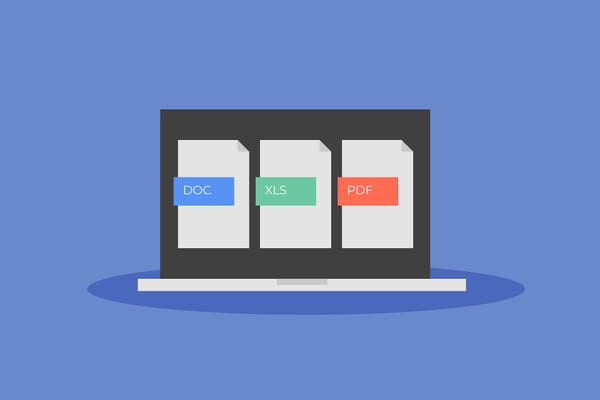TurboTax for Small Business: Is It Safe and Reliable?

When it comes to small business taxes, selecting the right tools can make all the difference. Among the many tax software options available, TurboTax stands out as one of the most popular choices for business owners in the US and Canada. Filing your federal income tax return depends largely on how your business is structured—whether you're operating as a sole proprietor or through a legal entity like an LLC or corporation.
Each type of business entity requires specific tax forms to report income and expenses. However, the process of calculating taxable business income generally follows similar principles, no matter which form you're using. TurboTax offers two tailored solutions for small business owners: TurboTax Home & Business, ideal for sole proprietors and 1099 contractors, and TurboTax Business, designed to help prepare taxes for corporations, partnerships, and LLCs.
What is TurboTax?
TurboTax, created by Intuit, is widely recognized as a leading tax software solution. It is appreciated for its user-friendly interface, comprehensive features, and strong commitment to accuracy. Designed to simplify the often daunting process of tax filing, TurboTax offers a 100% accuracy guarantee, giving users peace of mind that their returns are filed correctly.
TurboTax supports a wide range of tax forms, making it suitable for various personal and business situations. Whether you're managing rental income, reporting freelance earnings, or navigating the complexities of cryptocurrency transactions, TurboTax has you covered. With intuitive prompts and guided steps, it is accessible even for those new to filing taxes, making it a reliable choice for small business owners who want to save time and ensure accuracy.
How Does TurboTax for Small Businesses Work?
With tailored solutions and step-by-step guidance, TurboTax simplifies the tax process, whether you're a sole proprietor, independent contractor, or managing a corporation or partnership.
Step 1: Collect Your Records
Before you start, gather all relevant business records, including income and expense documentation. Using tools like spreadsheets or accounting software to track transactions throughout the year can save you time and help avoid errors. TurboTax integrates seamlessly with QuickBooks and Quicken, allowing you to import financial data directly into your tax return.
Step 2: Find the right form
Determine the correct IRS tax form. You always need to report your business earnings to the IRS and pay tax on them, but choosing the right form to report earnings on depends on how you operate your business.
Many small business owners operate as sole proprietors, which allows them to report all business income and expenses using a Schedule C attachment to their personal income tax return. If you run your business as a single-member LLC, the IRS also treats you as a sole proprietorship, and you would still use the Schedule C attachment.
When using TurboTax Home & Business (designed for sole proprietors and independent contractors) or TurboTax Business (for corporations, LLCs, and partnerships), you simply need to answer a series of questions about your business income and expenses. TurboTax will automatically fill out the appropriate forms for you.
Step 3: Fill Out Your Forms
TurboTax simplifies filling out forms by guiding you through the process:
- For sole proprietors using Schedule C, the form is only two pages long, making it easier to complete. It calculates your net profit or loss by subtracting expenses from income.
- For corporations filing Form 1120, additional details may be required, and this form is separate from your personal tax return.
Step 4: Stay on Top of Deadlines
Different business structures have varying filing deadlines:
- Schedule C (as part of Form 1040): April 15.
- Form 1120 (C-Corporations): April 15.
- Form 1120S (S-Corporations) or Form 1065 (Partnerships): March 15.
TurboTax keeps you informed about these deadlines to ensure timely filing.
(Source: TurboTax)
Related: Quickbooks for Small Business. How to Secure Your Account
Is Your Tax Data Safe?
When filing taxes, you share a wealth of sensitive financial information, so ensuring its security should be a top priority as tax-related scams are on the rise. Criminals posing as IRS officials or exploiting vulnerabilities in tax filing systems can lead to financial loses and identity theft.
Here’s how Intuit, the company behind TurboTax, protects your data:
- They do not sell your personal information.
- They provide transparency and control over how your data is shared.
- They collaborate with the IRS and state revenue departments to implement measures designed to safeguard your data and protect your privacy.
- They securely store your documents, and their encryption technology protects your personal and financial information, helping to prevent unauthorized access.
Intuit uses the data you share with them to assist you in reaching your financial goals while giving you choices regarding how they collect and share it. You also have the ability to download, update, and delete your data directly from your Intuit account without the need to call or email them.
Tips for Keeping Your Tax Data Secure
Keeping your information safe is a shared responsibility. While TurboTax takes measures to protect your information, you also play a vital role in ensuring your data remains safe and protect yourself from identity theft, scams, and unauthorized access.
Be Wary of Scams
Tax scammers often use phone calls, phishing emails, or fake notices to trick people into sharing sensitive information or making immediate payments. Remember, the IRS will never demand payment over the phone or send emails asking you to update your tax account. If you receive a suspicious email, avoid clicking on links or downloading attachments. When in doubt, contact the IRS directly to verify the legitimacy of the communication.
Related: 7 Types of Credit Card Fraud & How Your Businesses Can Avoid Them
Strengthen Your Passwords
One of the easiest ways to secure your tax data is by creating strong, unique passwords for all your accounts. Use a mix of upper- and lowercase letters, numbers, and special characters, ensuring the password is at least 10 characters long. Regularly update your passwords and avoid reusing them across multiple accounts. A Password manager like Bitdefender Password Manager can help you generate and store strong passwords securely.
Tip: Password-protect your tax file in the TurboTax Desktop software
- Open the tax return you want to password-protect.
- From the File menu at the upper left of the screen, select Password... (on Mac, select Encrypt).
- Fill out the information in the pop-up window and then select Add Password.
Protect Your Devices
Your computer is a gateway to sensitive information, so safeguarding it is essential. Password-protect your files, encrypt important documents (such as tax returns), and use antivirus software to keep malware at bay. Additional steps include:
- Restricting access to confidential files by keeping them in secure folders.
- Encrypting tax documents to prevent unauthorized access if your device is lost or stolen.
Use Secure Networks
Avoid accessing sensitive information over public Wi-Fi networks, as they are often unsecured and prone to data theft. Instead, use a private, secure network or activate a VPN when sharing personal or financial details online.
Related: Venmo Business Account Scams: What You Need to Know and How to Stay Safe
Get the Best Security for Your Small Business
The easiest way is to secure all the devices you use for work with Bitdefender Ultimate Small Business Security.
You will have exceptional protection against all digital threats for your business and employees.
Email Protection. Scans and blocks phishing emails, suspicious links, and fake invoices and prevents employees from accidentally clicking on malicious links.
Scam Detection. Scam Copilot monitors emails, texts, and chats for fraud. It alerts you and your employees when a scam attempt is detected, providing real-time guidance on how to handle it.
Password Management. Password Manager automatically generates strong, complex passwords that meet security best practices.
Secured Remote Work. The VPN protects your team from unsafe public Wi-Fi networks (like those in coffee shops or airports). Ensures all communication between remote employees and your business systems is fully secure.
Device Protection: Detects and blocks malware in real time, including viruses, ransomware, and spyware on all laptops and smartphones.
Monitoring of Your Business's Digital Identity. Monitors your business's online presence for potential data leaks, unauthorized use of your business name, and exposure of sensitive information, even on the dark web, alerting you to any breaches.
Check out the plans here.
FAQs
Who is TurboTax best for?
TurboTax is ideal for a wide range of users, from individuals with straightforward tax needs to small business owners with more intricate filings. Freelancers, independent contractors, and sole proprietors can benefit from TurboTax Home & Business, while those managing corporations, partnerships, or multi-member LLCs will find TurboTax Business to be a perfect fit. Its intuitive interface and step-by-step guidance make it accessible for both tax-savvy users and beginners.
What is the difference between TurboTax Home & Business and Premier?
TurboTax Home & Business is tailored for small business owners, freelancers, and independent contractors, helping them report business income and expenses alongside personal taxes. It includes tools for handling 1099 forms and self-employment deductions.
TurboTax Premier, on the other hand, focuses on individuals with investment-related tax needs, such as stock sales, rental property income, and cryptocurrency reporting. While both products provide in-depth tax guidance, the key difference lies in the specific tools they offer for business versus investment scenarios.
Is TurboTax Safe for a Small Business?
TurboTax is a safe and reliable option for small businesses. It employs advanced security measures, including encryption technology, secure document storage, and collaboration with the IRS and state revenue departments to safeguard sensitive financial data. TurboTax also ensures that users retain full control over their information, allowing them to manage, update, or delete their data directly through their Intuit account. With its tailored products like TurboTax Home & Business and TurboTax Business, small business owners can confidently file their taxes while protecting their data from potential threats.
tags
Author
Cristina is a freelance writer and a mother of two living in Denmark. Her 15 years experience in communication includes developing content for tv, online, mobile apps, and a chatbot.
View all postsRight now Top posts
Outpacing Cyberthreats: Bitdefender Together with Scuderia Ferrari HP in 2025
March 12, 2025
Streamjacking Scams On YouTube Leverage CS2 Pro Player Championships to Defraud Gamers
February 20, 2025
How to Identify and Protect Yourself from Gaming Laptop Scams
February 11, 2025
Your Device ‘Fingerprint’ Will Go to Advertisers Starting February 2025
December 24, 2024
FOLLOW US ON SOCIAL MEDIA
You might also like
Bookmarks







